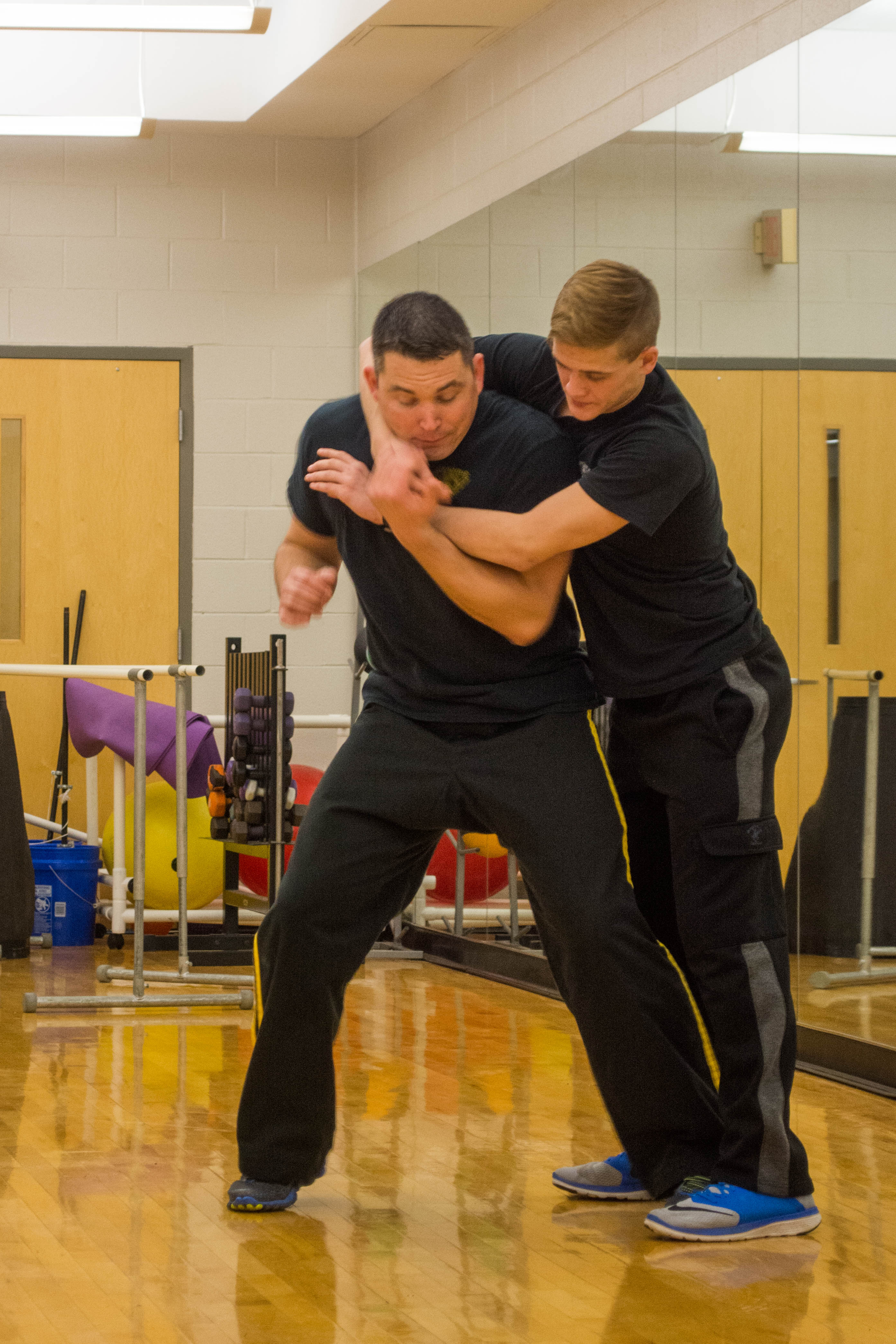This semester, the university decided to offer its first self-defense class called Psych 193-Fight Back: Stop Sex Assault.

The one-credit mod class is taught by psychology professor Andrea Karkowski with the assistance of three student teachers: senior exercise science major Sarah Nist; psychology, sociology, and criminology major Rachel Comi; and junior biology major Kelsey Pinckard. Each of the students will be using the class as their capstone project.
“Sarah and I co-lead the It’s Abuse organization on campus, which focuses on issues of domestic violence and sexual assault,” Comi said. “We have done extensive research for events for that group … so it just made sense to transfer that research into a capstone project [to] share what we know with the students at Capital.”
Last semester, It’s Abuse hosted a showing of “The Hunting Ground,” a documentary on college campus rape culture that focuses on two former University of North Carolina students’ journey to file a Title IX complaint against UNC.

While these students do not have self-defense training backgrounds, they are interested in spreading the word around campus and making sure that their fellow classmates are educated.
“We want the participants to have an increased sense of safety … [and] to come away from this class with an ‘action plan’, and [the knowledge of] how to report if something does happen,” Pinckard said.
Students are not only being taught how to protect themselves in the event of an assault, but are also gaining crucial knowledge about sexual assault as a whole and what to do if they find themselves in this situation.
“Preventing sexual assault requires several strategies,” Karkowski said. “Understanding … the culture that allows sexual assault to continue, educating others about what consent is and how [to give it], [and] defining and developing healthy sexuality.”
The self-defense portion of this class is being taught by Scott Mulhollen. Mulhollen has over twenty years of self-defense training experience and has worked with various military and police departments.
“We refuse to stand by while sexual assault continues to be an issue on this campus,” Nist said. “A voice empowers [while] silence oppresses … We are hoping to see an increase in education and activism on campus.”
Nist also points out that she thinks it is important to approach each class with the mindset that every student is just as much the teacher as she and her colleagues are.
Those involved with making this class happen hope that it is made permanent, so that all future students have the opportunity to learn more about sexual assault and how to better understand sexual assault, both on and off college campuses.



